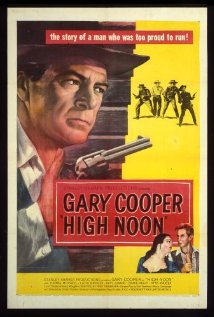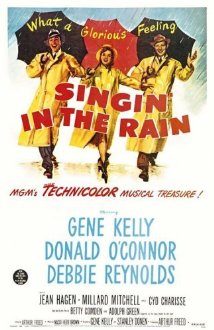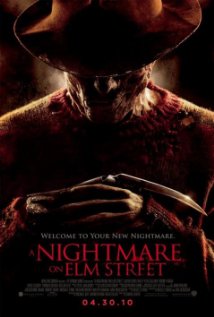Marathon Writing
When I first joined the Navy in 1999, there was a moment before Basic Training where myself and whole slew of other would-be sailors were taken into a room with a Job Classifier. He took all of our test scores, then showed us which “jobs” were available to us. Back then, if a person wasn’t overweight or cognitively challenged the Classifier would always ask, “Have you ever thought about being a Navy SEAL?” I told him I’d think about it and get back to him if that was okay, to which he agreed.
That night, I called my Uncle Andy, a former Navy SEAL during the Vietnam-er. A true “tough bastard Frogman.” He asked me one question, “Do you think you can do it,” to which I quickly responded with confidence, “I think I could.” What followed was a loving belittling that only a Sailor could bestow, “Then don’t waste the Navy’s f**king time,” he told me. His point was that to be a SEAL, you have to know from day one that you’re going to be a SEAL – not think. It starts with the mindset as he says, “Eighty percent of it is all mental.” The same can be applied to pretty much anything in life. No one has ever stepped up to a plate, thrown a touchdown pass, brokered a huge merger, or won an Oscar by thinking that they could do it. They KNEW it!
By habit and time availability, I’m a morning writer. As my Twitter followers and Facebook friends will tell you, I post all the time from my favorite writer’s nook – my car, in the parking lot on base. I’ll get into my rhythm, then watch as a scene is coming to fruition and the clock tells me it’s time get onboard the ship. It’s a total creative buzz kill! I’m sure everyone has felt that kick in the groin. So I asked myself, if given the time, could I write an entire screenplay in one day?
My answer: I know I can.
Never one to outline on paper, I sat down Saturday morning with a general premise and character outline in my head, and just started banging away. The general idea was a basic homage to 80’s B-Movie Horror flicks, so it wasn’t like I was attempting to sit down and write Gone With The Wind in less than twenty-four hours. The dialogue is cheesy, the jokes are corny, but the plot is totally RAD! Most of all, it is a story that I knew in my head could be banged out in a marathon session such as the one I was attempting.
After 11-12 hours of writing (I lost track) I was sitting on 70 rough pages of completed, speculative gnarliness. Not hideously rough, but by no means perfect. The point wasn’t to write a marketable, perfectly written spec in a day, anyway – just to start and finish the first draft! Goal complete! Total win!
My takeaway from the experience was moving. This was an accomplishment to me, as it should be to anyone up to the challenge, but there was so much learned just throughout the day. I’m talking simple things that I can now use even in shorter writing sessions. So allow me to pass on these few tokens of salt:
- STOP WRITING! Stop a lot. Take long breaks. Throughout the day, I continuously would find myself hitting a wall, even when I knew how a scene should go. In the beginning I was saying to myself, “Don’t stop. Push through. Keep writing!” but as the day wore on, I found that when I’d stop to fix a sandwich, or refill my drink, I could break that tunnel-vision and end up adding a whole new unplanned layer to the story! Break time is key to anything requiring prolonged endurance! Allow your mind to relax so you don’t burn out too soon.
- SET REALISTIC GOALS. Like I said, I was writing an homage to 80’s horror. My plot was pretty much A to Z and my characters were mildly dynamic. I didn’t need to spend an hour trying to figure out the internal motivations of the antagonist (albeit they came to me on a bathroom break). I literally spent every moment at the keyboard writing. No thinking. A marathon is 26 miles of nothing but running. Were they to add hurdles and obstacles, it’s less attainable to complete a marathon in a manageable time. So when marathon writing, keep it as simple as possible. And for the sake of your brain, never aim for perfection on a first draft. You will have days upon days of rewrites to mold and flesh everything out. Just be sure that at the starting line, you know where you want to be when you finish.
- Yes, I said to take long breaks, but not to the point where you break your flow. At one point my wife called the house to discuss furniture. I’d been writing for the better part of two hours and stopped to chat. I needed the break. I sat down in the recliner, got comfy, and we talked for a while. Then she said, “So how’s the script?” I freaked! The script! “Honey, I gotta go!” She almost cost me the rest of the day because by the time that I sat back down at my Mac, a lot of that heat in the ole fingertips was lost! Always keep that end-goal in sight!
Finally, to reiterate the most important part of all this…
- KNOW YOU CAN DO IT. Never sit down to write, whether it be for a few minutes or twelve hours, without knowing you can hit your goal. It could be a line of dialogue, a scene, or a whole script. Know your goal and know you can get there. At 9pm, I was hurting. My back was griping about the chair, my eyes were red and burning, and the inspirational hair-band music selection had repeated itself so many times that I was already sick of some of my favorite songs — but I was right there. So close to the end. I had made myself a promise that morning that this spec would be finished before I went to bed, and be damned if it wouldn’t be! Know you can do it, well before you start, or don’t start at all. Mind over matter isn’t a cliche, people, it’s required.
In closing, let me add that I highly recommend all writers do a marathon session at least once in your life. Sooner than later! It was a blast, and has really pumped me up to write even more. If I’m ever faced with doubt, or worries about finishing a scene or on deadline, I can look back and say, “I wrote an entire spec in one day. I can do this!” It’s not hard to look at a 5k after running a marathon and think about how much easier it’s going to be.
As I always tell people, I’m not famous, nor am I a paid professional. My words are just here for encouragement with the hope that someone takes something away from them. At the end of the day, I’m just a Sailor that loves to write.
Follow me on Twitter: @RodThompson
About the Writer: Rod Thompson currently serves on Active Duty in the United States Navy, with fifteen years of honorable service. In the past ten years he has written numerous award-winning short scripts, with five (or so) having been produced. He recently won Best Drama in 2014’s “Table Read My Screenplay” feature length contest. Rod can be reached at rodthompson1980 “AT” gmail.com.










